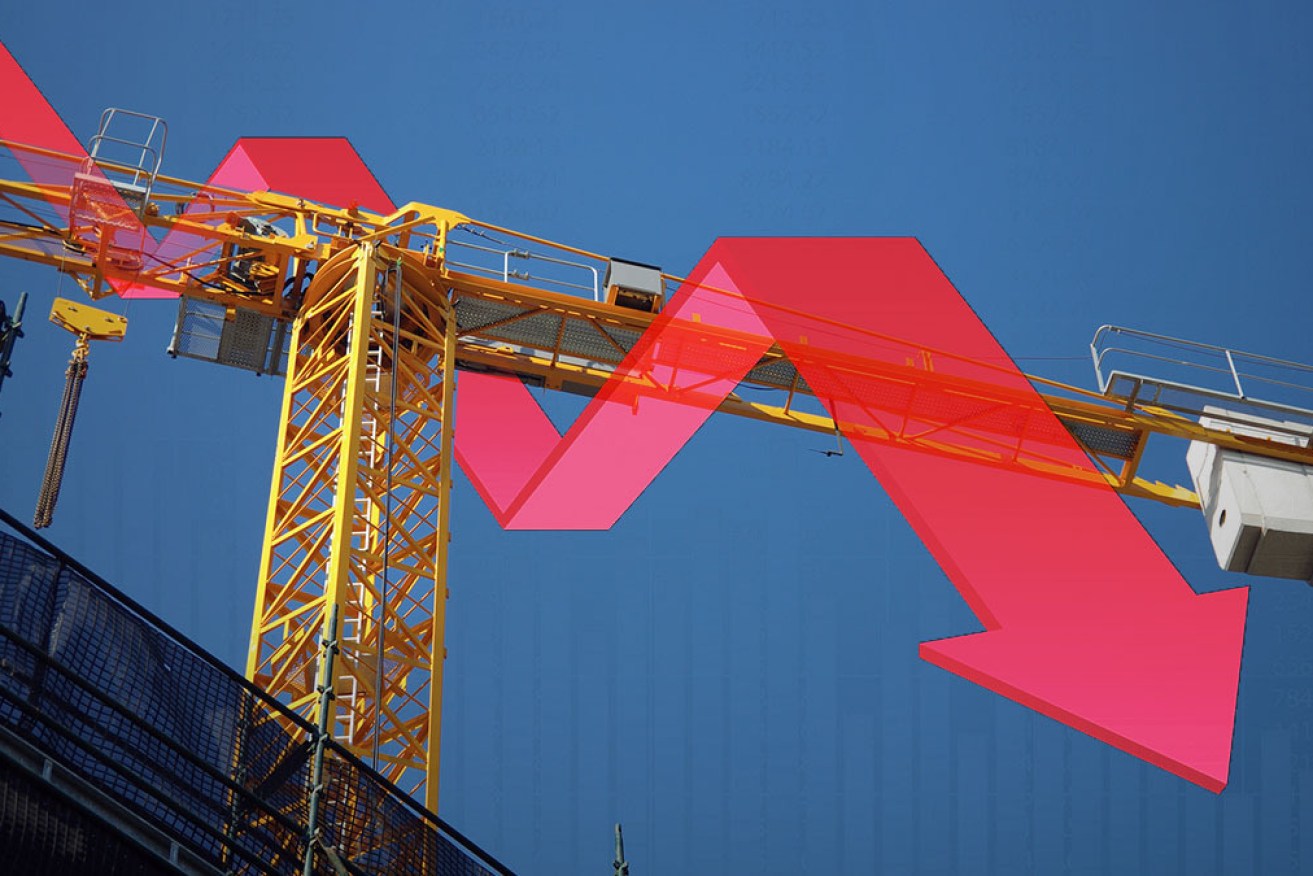Another 640,000 jobs could be lost before March as borders remain shut


The construction industry could lose up to 205,000 jobs by March, according to McKinsey. Photo: TND
Australians could lose another 640,000 jobs between June and March as declining migration weighs on consumer spending.
Global consulting group McKinsey described the closure of international borders in a new economic analysis as “the most significant force of the economic shock in Australia so far”.
Shutting our borders has dramatically reduced the number of tourists visiting hotels and spending money in restaurants and shops.
It has also decimated revenue from international students and slashed demand for housing – at a time when domestic consumers are tightening their purse strings due to job and income losses.
Consequently, McKinsey predicts the second wave of coronavirus job losses could be almost as large as the first.
Data from the Australian Bureau of Statistics shows businesses shed roughly 740,000 payroll jobs between March 14 and June 27.
And McKinsey is forecasting another 270,000 to 640,000 jobs to go by March 2021, as the federal government gradually winds back its stimulus measures.
The consultants estimate that the hospitality sector could lose between 235,000 and 320,000 jobs from March 2020 to March 2021, that retail could lose between 160,000 and 215,000 jobs, and that construction could lose between 150,000 and 205,000.
They say the Australian economy faces six major challenges:
- Fewer domestic customers
- Industry constraints
- Sluggish spending per person
- Falling export value
- Declining business health
- Structural changes, such as automation and the shift online.
The first two are caused by COVID-19 restrictions, the next three reflect temporary business-cycle effects, and the final point on structural changes refers to permanent changes in the economy, such as more people shopping online instead of in store.
Some industries, such as tourism and education, will be hit hard by COVID-19 restrictions, but will be well placed to recover once the threat passes,” the consultants write.
“Others, such as construction, will be protected from these direct effects but will still be indirectly exposed to the crisis via business-cycle effects or structural changes.”
Based on past figures, the tourism industry will miss out on $40 billion in revenue if international tourists are unable to visit Australia for 12 months.
That revenue loss will be spread across the hospitality, entertainment and retail industries – though it could be offset by Australians directing $45 billion of annual spending on overseas holidays towards domestic trips instead.
“However, Australians would need to take very different types of holidays in order to repurpose this spending because they typically spend less money on domestic holidays than on international travel, as well as less time – only one week, rather than three, on average,” the McKinsey consultants write.
Meanwhile, as JobKeeper is slowly wound back from the end of September, the construction industry will this year suffer a contraction far worse than that predicted by Reserve Bank deputy governor Guy Debelle in October 2019 (minus 7 per cent).
And although consumer spending has held up reasonably well during the crisis, and often exceeded pre-pandemic levels, McKinsey warns that was caused by temporary stimulus payments and “hid continued weakness in baseline spending”.
On top of this, the shift to online shopping will deliver another major blow to struggling brick-and-mortar retailers, with McKinsey claiming “the business fundamentals underpinning this structural shift mean that it is likely to be permanent”.

On August 3, Victorian Premier Daniel Andrews said large swathes of the construction industry would have to reduce staff by 75 per cent. Photo: AAP
Unions and retailers fear job losses
CFMEU national construction secretary Dave Noonan said the construction union was concerned about potential job losses “if building work drops off significantly over the next 12 to 18 months” – not least because the sector employed roughly 10 per cent of the national workforce before the pandemic.
“The impact of a downturn in construction would be devastating for workers and catastrophic for the economy,” Mr Noonan told The New Daily.
“The government needs to put serious stimulus into construction, such as a massive investment in social and affordable housing to secure jobs, drive local investment in the economy and provide housing security for the thousands of Australians who need it.”
Calls for more social housing have found support among a diverse cross-section of society, including Labor, the Greens, unions, community welfare groups, and economists.
But the federal government has so far ignored these suggestions.
As for the retail industry, Australian Retailers Association CEO Paul Zahra said although the JobKeeper program had saved jobs, the industry’s future was uncertain, with the biggest pain points being staffing and leasing.
“There’s no question that JobKeeper has helped sustain retail jobs and will continue to do so into 2021,” Mr Zahra said.
“What happens after that scheme ends really comes down to our lockdown situation around the country and the health of the overall economy.”
Asked whether the government should announce more stimulus to specifically target the retail sector, he added: “We believe there may be a case for further extension of government support within certain categories beyond what has already been announced.”










